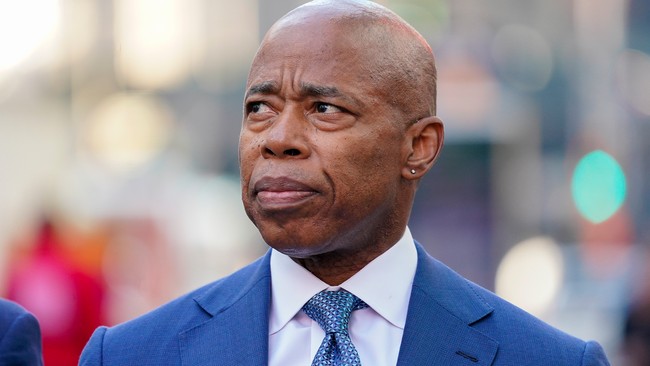Albert Einstein’s first violin which he was forced to hide from the Nazi’s is set to be sold for a whopping £300,000.
The famed physicist acquired the stringed instrument shortly before leaving Munich to move to Switzerland for his studies in the mid-1890s.
He played the violin, which he later engraved ‘Lina’, throughout his late teens and into his adult life as he developed his groundbreaking theory of relativity.
Now, the violin has been placed on the market at an estimated price of £200k to £300k, while his bicycle saddle could also fetch up to £50,000.
The incredible instrument, which has the Munich-based maker’s dated label inside, has all original parts about from strings, the tail loop and fine-tuning screw.
However, the rest of the celebrated mathematician’s bike stopped functioning normally and was later disposed of by von Laue.
A Descartes and Spinoza philosophy book, signed in pencil twice by Einstein, is also tipped to make £3,000.
The treasured relics have remained in the Einstein family for 70 years and are now being sold by auctioneers Dominic Winter, of Cirencester, Gloucestershire.
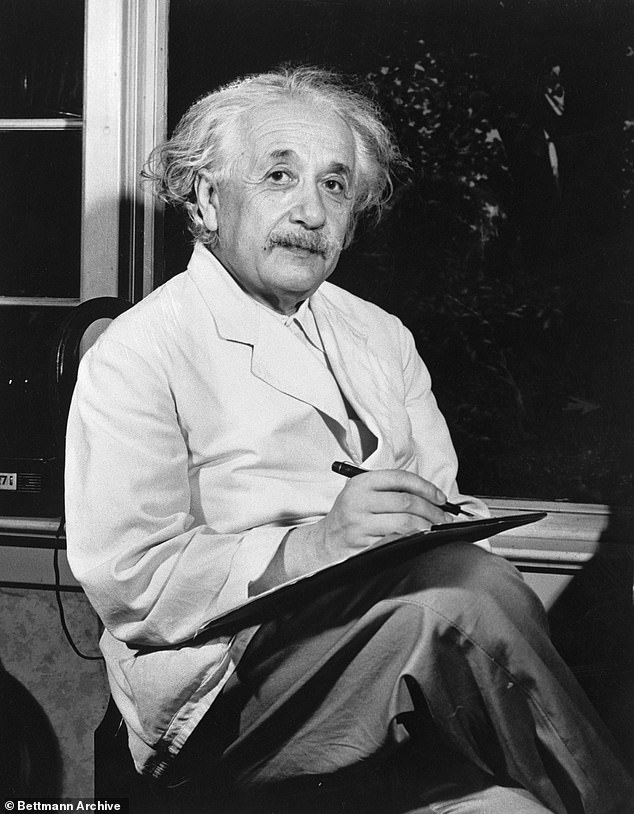
Albert Einstein’s first violin which he was forced to hide from the Nazi’s is set to be sold for a whopping £300,000. The famed physicist acquired the stringed instrument shortly before leaving Munich to move to Switzerland for his studies in the mid-1890s
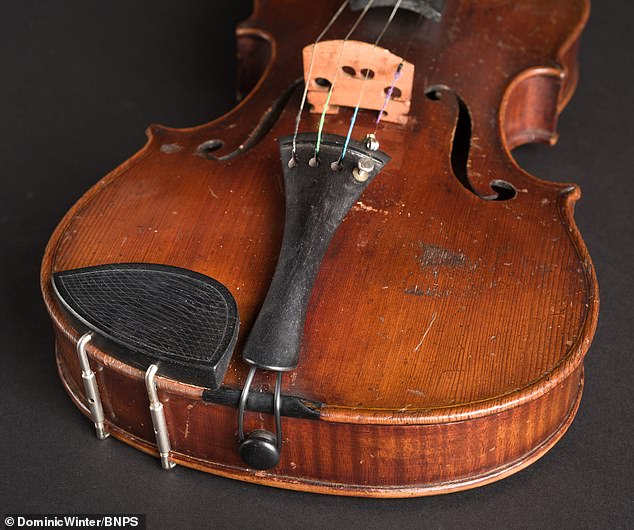
Now, the violin (pictured) has been placed on the market at an estimated price of £200k to £300k, while his bicycle saddle could also fetch up to £50,000. It is being sold by auctioneers Dominic Winter, of Cirencester, Gloucestershire
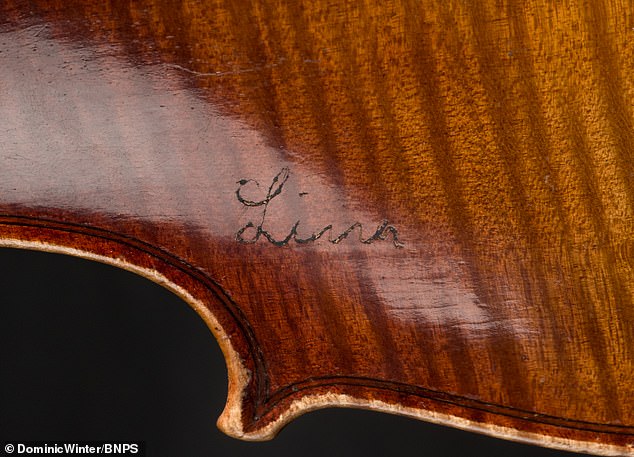
He played the violin, which he later engraved ‘Lina’, throughout his late teens and into his adult life as he developed his groundbreaking theory of relativity
Einstein, who died in 1995, gifted the 1894 Anton Zunterer violin along with his bicycle and a philosophy book to his good friend and physicist colleague Max von Laue in late 1932.
He was about to flee Germany for America to escape Nazi persecution due to his Jewish faith and wanted his possessions to not be lost.
Twenty years later, von Laue gifted the items to a friendly acquaintance and Einstein fan, Margarete Hommrich from Braunschweig.
Einstein started playing the violin aged five and practiced almost every day throughout his life, even giving public performances.
Sadly, no audio recordings exist but he said that, had he not become a physicist, he would have pursued a career in music.
The keen cyclist once told his son Eduard that ‘life is like riding a bicycle, to keep your balance, you must keep moving’.
Senior auctioneer Chris Albury said: ‘We are thrilled to be handling these extraordinary historical artefacts.
‘Einstein’s violin is a particularly precious and exciting item to handle.
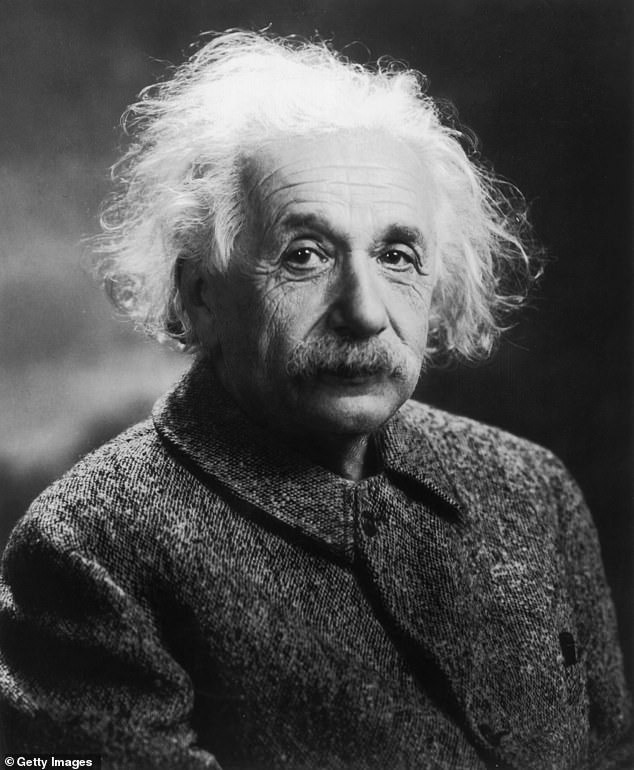
Einstein, who died in 1995, gifted the 1894 Anton Zunterer violin along with his bicycle and a philosophy book to his good friend and physicist colleague Max von Laue in late 1932. He was about to flee Germany for America to escape Nazi persecution due to his Jewish faith
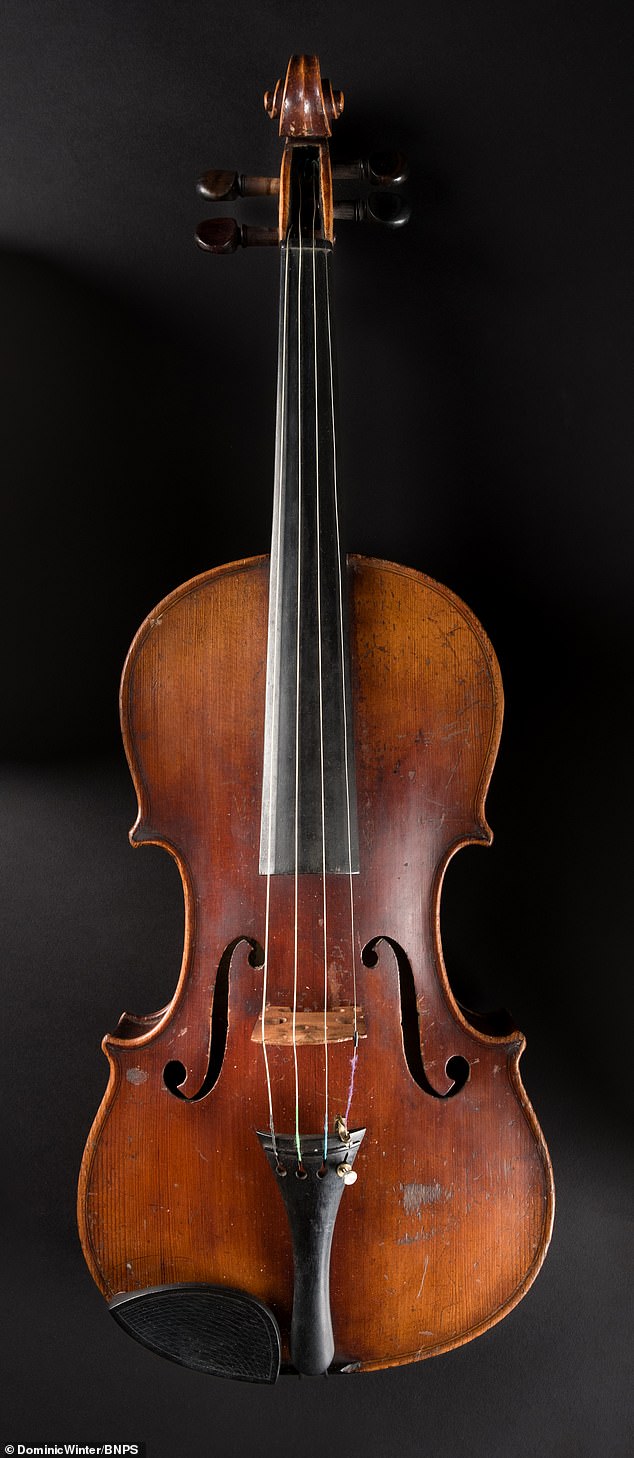
Einstein started playing the violin aged five and practiced almost every day throughout his life, even giving public performances. Sadly, no audio recordings exist but he said that, had he not become a physicist, he would have pursued a career in music. Pictured: the famous violin on sale
‘When it arrived for analysis and valuation the violin’s sound post and bridge were both detached and it had not been played for a very long time.
‘We know that Einstein named all his violins ‘Lina’, so to see this etched onto the back panel was hair-raising.
‘Von Laue had later disposed of the bicycle when it seized up, but he kept this leather saddle as it was so comfortable.
‘Remarkably, the original Nelson saddle order form, completed, dated and signed in Einstein’s hand was also retained and is offered with the saddle.
‘The Zunterer ‘Lina’ violin would seem to be the one he would have been playing from his later teens and through his early adult life, most notably when he published his important papers on relativity in 1905 and 1915.
‘It is spine-tingling to think that he would have been playing pieces by his beloved Mozart and Bach while his young mind was thinking through his revolutionary ideas, many of which still underpin so much scientific and technological research today.
‘I expect we will get private and institutional interest from around the world and we will only find out what will happen come the auction day itself.’
Another violin owned by Einstein after he arrived in America in 1933 sold at auction for £370,000 ($516,500) in New York in 2018.
The sale is set to take place on October 8.


